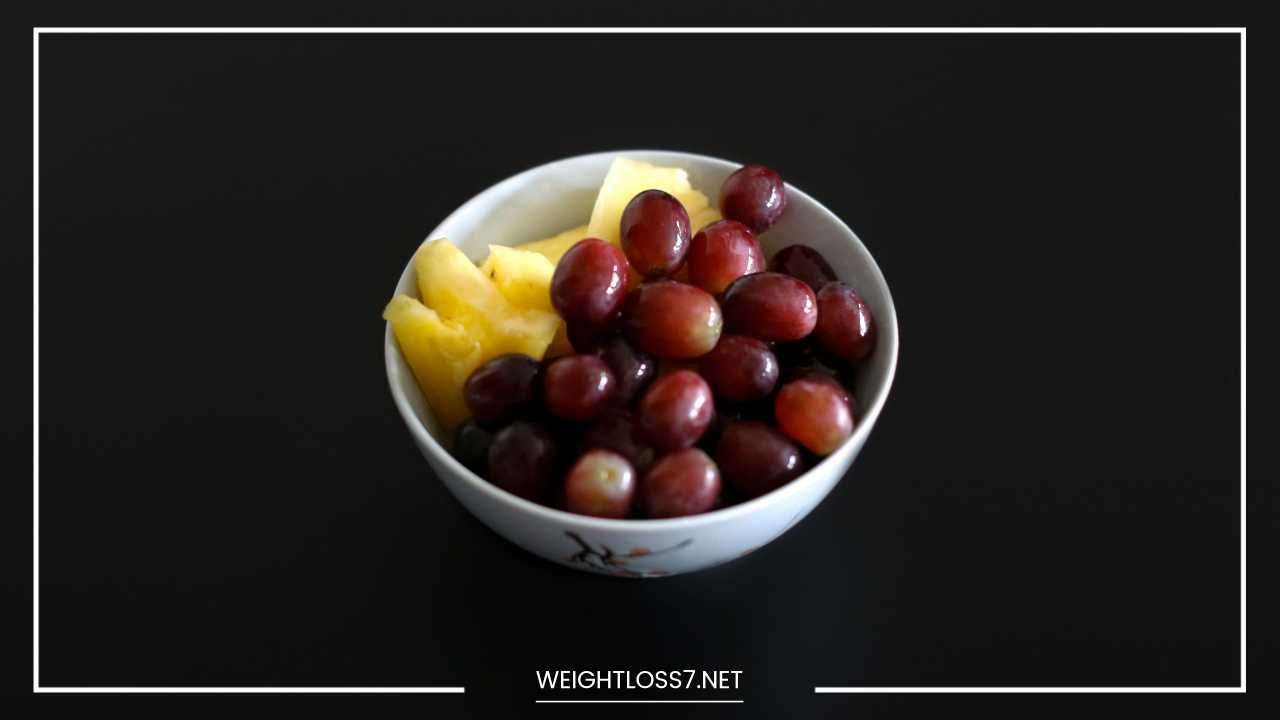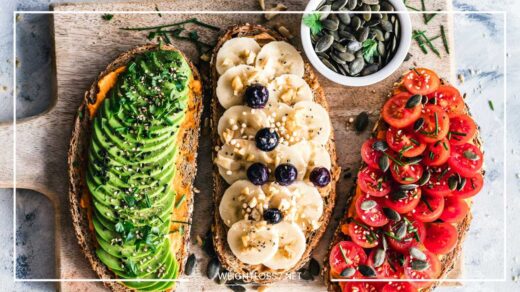Weight Loss Without Counting Calories: A Practical Approach

Weight Loss Without Counting Calories
Weight Loss Without Counting Calories: A Practical Approach
If you’re tired of the relentless calorie-counting treadmill, you’re not alone. While tracking calories can indeed be effective for weight loss, it’s not the only route to a healthier you.
This comprehensive guide will delve into practical, holistic strategies for achieving your weight loss goals without the constant preoccupation with calorie numbers.
Instead, we’ll focus on sustainable practices that support long-term health and well-being.
Understanding the Concept of Balance
Before we dive into specific strategies, it’s essential to grasp a fundamental concept: balance. While calorie control can contribute to weight management, it is merely one component of a broader, more holistic approach.
True and sustainable weight loss involves a balanced integration of healthy eating, regular physical activity, and mindful living.
By focusing on balance, you create a lifestyle that supports both your physical health and mental well-being.
Why Balance Matters
Achieving balance means not fixating solely on the caloric content of your food but rather considering the nutritional quality, portion sizes, and overall eating patterns.
Calorie counting can sometimes lead to unhealthy relationships with food, where individuals may focus on avoiding high-calorie items rather than embracing nutritious, satisfying foods.
A balanced approach encourages you to make choices that nourish your body while fostering a positive mindset.
1. Prioritize Whole Foods
Nutrient-Dense Options
The foundation of a balanced diet lies in consuming nutrient-dense foods. These are foods that provide a high amount of essential nutrients relative to their calorie content.
Focusing on fruits, vegetables, lean proteins, whole grains, and healthy fats ensures that your body receives the vitamins, minerals, and fiber it needs to function optimally.
Fruits and Vegetables: These should form a significant part of your diet. They are rich in vitamins, antioxidants, and fiber, which contribute to satiety and overall health. Aim for a variety of colors on your plate to maximize nutrient intake.
Lean Proteins: Incorporate sources such as chicken, turkey, tofu, legumes, and fish. Proteins are essential for muscle repair, immune function, and overall metabolic health. They also help keep you feeling full longer.
Whole Grains: Opt for whole grains like brown rice, quinoa, oats, and whole wheat products. These are less processed and retain more fiber and nutrients compared to refined grains, which helps regulate blood sugar levels and promotes digestive health.
Healthy Fats: Include sources such as avocados, nuts, seeds, and olive oil. Healthy fats are crucial for brain function and hormone regulation, and they can help keep you satisfied.
Limit Processed Foods
Highly processed foods often contain excessive amounts of unhealthy fats, sugars, and sodium. These foods can contribute to weight gain and negatively impact your overall health. Focus on reducing your intake of:
Sugary Snacks and Beverages: Items like candy, pastries, and sugary sodas add empty calories without providing substantial nutritional value. Opt for natural sweetness from fruits instead.
Fast Food: Frequently eating fast food can lead to excessive calorie consumption and poor nutritional choices. When dining out, choose healthier options and practice portion control.
Packaged Foods: Many packaged foods contain hidden sugars and unhealthy fats. Reading ingredient labels can help you make more informed choices.
2. Practice Mindful Eating
Pay Attention to Your Food
Mindful eating is about being fully present during meals and appreciating the experience of eating. It involves focusing on the sensory aspects of food, such as taste, texture, and aroma, and paying attention to how your body feels throughout the meal.
Eat Slowly: Take your time to chew thoroughly and savor each bite. This practice helps you recognize when you’re full, reducing the likelihood of overeating.
Enjoy the Experience: Make your meals enjoyable by setting a pleasant table, using nice dishes, and creating a calm eating environment. This can enhance your appreciation for your food and support more mindful eating habits.
Avoid Distractions
Eating while distracted can lead to mindless overeating. To foster a more mindful eating experience:
Turn Off Screens: Avoid eating in front of the TV or while using your phone. Instead, focus on your meal and engage with your dining companions if you’re eating with others.
Create a Relaxed Environment: Choose a quiet space for meals where you can concentrate on eating without interruptions.
3. Embrace Portion Control
Use Smaller Plates
One effective way to manage portion sizes is to use smaller plates and bowls. This visual trick can help you feel more satisfied with smaller portions and prevent overeating.
When your plate appears full, your brain perceives that you are eating more, even if the portion size is actually smaller.
Try Different Plate Sizes: Experiment with various plate sizes to find what works best for you. A smaller plate can help you regulate portions and prevent the tendency to pile on more food.
Listen to Your Body
Pay attention to your body’s hunger and fullness cues. Eating according to these signals helps prevent overconsumption and supports a healthier relationship with food.
Eat Until You’re Satisfied: Stop eating when you feel comfortably full, rather than waiting until you’re stuffed. This approach helps you enjoy your food while avoiding excessive calorie intake.
4. Stay Hydrated
Drink Plenty of Water
Hydration plays a crucial role in weight management and overall health. Drinking sufficient water can help control appetite, support metabolism, and improve digestion.
Aim for 8 Glasses a Day: While individual hydration needs vary, a general guideline is to drink at least eight 8-ounce glasses of water daily. Adjust based on your activity level and climate.
Incorporate Herbal Teas: Unsweetened herbal teas can also contribute to your fluid intake and provide additional health benefits, such as antioxidants and soothing properties.
Limit Sugary Drinks
Sugary beverages, such as sodas, energy drinks, and sweetened coffee, add significant calories without providing nutritional value. Replace these with healthier alternatives:
Choose Water: Opt for plain or infused water with natural fruit slices for added flavor.
Select Unsweetened Teas: Enjoy herbal or green teas without added sugars to stay hydrated and reduce calorie consumption.
5. Incorporate Regular Exercise
Find Activities You Enjoy
Exercise is a key component of a healthy lifestyle and supports weight loss by increasing energy expenditure and building muscle. Choose physical activities that you enjoy and can sustain over the long term.
Explore Different Options: Try various forms of exercise, such as dancing, swimming, cycling, or hiking, to find what you enjoy most. Engaging in activities you love increases motivation and adherence to your fitness routine.
Incorporate Variety: Mixing different types of exercise, such as cardio, strength training, and flexibility exercises, can prevent boredom and enhance overall fitness.
Aim for Consistency
Consistency is more important than intensity when it comes to exercise. Establish a routine that fits your lifestyle and stick to it.
Set Realistic Goals: Aim for at least 150 minutes of moderate-intensity aerobic activity or 75 minutes of vigorous-intensity activity per week, along with muscle-strengthening exercises on two or more days per week.
Incorporate Movement Throughout the Day: If finding time for a full workout is challenging, incorporate physical activity into your daily routine. Take short walks, use the stairs, or perform quick exercises at home.
6. Manage Stress Effectively
Practice Stress Reduction Techniques
Chronic stress can impact your weight and overall health by influencing eating habits and hormone levels. Incorporate stress management techniques into your daily routine to promote emotional well-being.
Meditation and Mindfulness: Practice meditation, deep breathing exercises, or mindfulness techniques to reduce stress and improve mental clarity. Even a few minutes a day can make a difference.
Yoga and Stretching: Incorporate yoga or stretching exercises to alleviate physical tension and promote relaxation. These practices can also enhance flexibility and overall well-being.
Prioritize Quality Sleep
Adequate sleep is essential for weight management and overall health. Quality rest supports metabolic function, hormone regulation, and stress reduction.
Establish a Sleep Routine: Aim for 7-9 hours of uninterrupted sleep each night. Create a consistent sleep schedule by going to bed and waking up at the same times each day.
Create a Restful Environment: Ensure your sleep environment is conducive to rest by keeping your bedroom dark, quiet, and cool. Avoid screens and stimulating activities before bedtime.
7. Seek Support and Guidance
Connect with Others
Having a support system can enhance motivation and provide encouragement throughout your weight loss journey. Connect with others who share similar goals or experiences.
Join Support Groups: Participate in weight loss or wellness support groups, either in-person or online. Sharing experiences and receiving encouragement from others can be valuable.
Find a Workout Buddy: Partnering with a friend or family member for exercise can increase accountability and make physical activity more enjoyable.
Consult a Healthcare Professional
If you have specific health concerns or need personalized guidance, consulting a healthcare professional can provide valuable insights and support.
Speak with a Registered Dietitian: A registered dietitian can help you create a personalized nutrition plan that aligns with your goals and dietary needs.
Consult with a Healthcare Provider: If you have underlying health conditions or need medical advice, consult with your healthcare provider for tailored recommendations.
Additional Tips for Success
Avoid Emotional Eating
Emotional eating can hinder weight loss efforts and lead to unhealthy eating patterns. Develop alternative strategies for managing stress and emotions.
Identify Triggers: Recognize situations or emotions that trigger emotional eating and find healthier coping mechanisms, such as engaging in hobbies or seeking social support.
Practice Self-Care: Incorporate self-care practices into your routine to manage stress and emotions in a positive way. This can include activities such as reading, journaling, or taking a relaxing bath.
Be Patient
Weight loss is a gradual process that requires patience and perseverance. Focus on making consistent, positive changes rather than expecting immediate results.
Celebrate Small Wins: Acknowledge and celebrate your achievements, no matter how small. Recognizing progress can boost motivation and reinforce healthy habits.
Stay Positive: Maintain a positive mindset and be kind to yourself. Understand that setbacks are a normal part of the journey, and use them as opportunities to learn and grow.
Track Your Progress
Monitoring your progress can provide valuable insights and help you stay on track with your goals. Consider using tools to track your habits and achievements.
Keep a Food Journal: Record your meals, snacks, and emotions to gain insights into your eating patterns and identify areas for improvement.
Use Fitness Apps: Utilize fitness apps to track your physical activity, monitor your progress, and set goals. Many apps also offer features for tracking nutrition and hydration.
Final Thoughts
Sustainable weight loss is about more than simply counting calories. It’s about adopting a balanced, holistic approach that includes nutritious eating, regular exercise, mindful practices, and effective stress management.
By prioritizing whole foods, practicing mindful eating, embracing portion control, staying hydrated, and seeking support, you can achieve your weight loss goals in a way that promotes long-term health and well-being.
Remember, the journey to a healthier you is a marathon, not a sprint. By focusing on making positive lifestyle changes and creating a supportive environment, you can build habits that not only support weight loss but also enhance your overall quality of life.
Embrace the process, be patient with yourself, and celebrate the progress you make along the way.

















